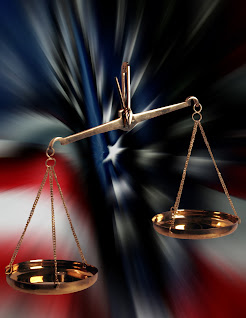6 Reasons Employment Discrimination Lawsuits Fail
The following is a list of six typical reasons that employment discrimination claims fail in Washington based upon my experience practicing employment-discrimination law in Washington State. The list is not exclusive, not scientifically prioritized, and is general in nature; I have drawn from both Washington State and Federal law. This article is solely offered as my point of view (NOTE: please read our DISCLAIMER before proceeding).
#6 -- THE DISCRIMINATING MANAGER HIRED YOU
The “Same-Actor-Inference” is a potential employer defense to a claim of employment discrimination. It’s applicable where the same actor is responsible for both the hiring and the firing of a discrimination plaintiff, and both actions occur within a short period of time; in that case, a strong inference arises that there was no discriminatory action. However, there is a bright note; in Washington, the Supreme Court has declined to adopt the Same-Actor-Inference with respect to unlawful retaliation claims.
#5 -- YOU WERE NOT PERFORMING SATISFACTORILY
Under the Washington Law Against Discrimination, disparate treatment discrimination is intentional discrimination, and it’s the most easily understood type discrimination. A substantial number of disparate treatment discrimination cases are based upon wrongful termination. Under this basis, a common method to prove discrimination is for the plaintiff to show that he/she is a member of a protected class, had satisfactory job performance, was discharged from employment, and was replaced by someone outside the protected class. However, oftentimes plaintiffs in employment discrimination lawsuits are not performing satisfactorily at the time of termination, and, thus, their disparate treatment claims may fail.
There is good news; disparate treatment discrimination based on wrongful termination is only one of a variety of potential theories of discrimination that might be claimed depending on the facts of each case. In addition, there are several approaches to making a case, and I have only addressed one based upon what is commonly known as the McDonnell-Douglas Formulation. Consult with an attorney to learn more (see #1 below).
#4 -- IMPROPERLY BASED DISCRIMINATION
Under Washington Law Against Discrimination, language and/or conduct at work may be considered unlawful only when it’s because of a protected class. Protected classes include race or color; national origin; creed; sex or pregnancy; sexual orientation or gender identity; veteran or military status; presence of any sensory, mental, or physical actual disability or perceived disability; use of a service animal; HIV or hepatitis C; marital status; and age.
The problem generally occurs when an employee complains of discrimination to their employer but fails to indicate that the discrimination occurred on account of their protected class. This may destroy a hostile work environment claim which requires, inter alia, that the harassing language or conduct occur because of the plaintiff’s protected class.
#3 -- YOU CAN’T HOLD THE EMPLOYER RESPONSIBLE
To hold an employer responsible for hostile work environment discrimination under Washington Law Against Discrimination, an employee must, inter alia, impute conduct to the employer. Where an owner, manager, partner, or corporate officer personally participates in the discriminatory conduct, employer liability is imputed automatically. However, if the harassment is by a supervisor, co-workers or others, then the employer is liable only if it authorized, knew or should have known of the harassment and failed to take reasonably prompt and adequate corrective action.
The lesson here is that reporting discrimination to the employer immediately after it occurs sets the foundation for employer liability; but remember #4 above — a properly drafted discrimination complaint should indicate, among other things, that the discrimination occurred on account of the employee’s protected class.
#2 -- YOU NEVER COMPLAINED
In number #4 above, the discrimination complaint was not properly drafted. Under the instant category, the problem is that the complaint was never filed.
A common claim associated with employment discrimination is unlawful retaliation. One way to form this claim is through a burden shifting framework which initially requires the plaintiff-employee to establish a prima facie case. A plaintiff-employee may typically establish a prima facie case of unlawful retaliation by producing evidence of (1) a protected activity by the employee, (2) an adverse action by the employer, and (3) the employer’s knowledge of the protected activity. The third element further requires the plaintiff-employee to show that the protected activity was a substantial factor for the adverse employer action.
One common type of protected activity that creates a partial basis for an unlawful retaliation claim is opposing practices forbidden by the Washington Law Against Discrimination. However, if an employee experiencing discrimination never complains to the employer, then the employee may not have effectively opposed discrimination under these circumstances (the employer may also claim that it lacks knowledge of the employee’s protected activity); and the claim of unlawful retaliation may fail.
#1 -- YOU DIDN’T CONSULT WITH AN ATTORNEY ASAP
Timelines are critical in employment discrimination cases. Failure to take prompt action could result in unexpected consequences such as an escalation in discrimination, termination, or being time-barred from pursing your rights through court. An employee/former employee may want to consider consulting with an attorney at the first instance of discriminatory language or conduct at work.
Learn More
If you would like to learn more, then consider contacting an experienced Washington State Employment Discrimination Attorney as soon as possible to discuss your case. Please note: the information contained in this article is not offered as legal advice and will not form an attorney-client relationship with either this author or Williams Law Group, PS; please see our DISCLAIMER.
–gw









